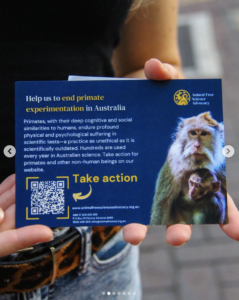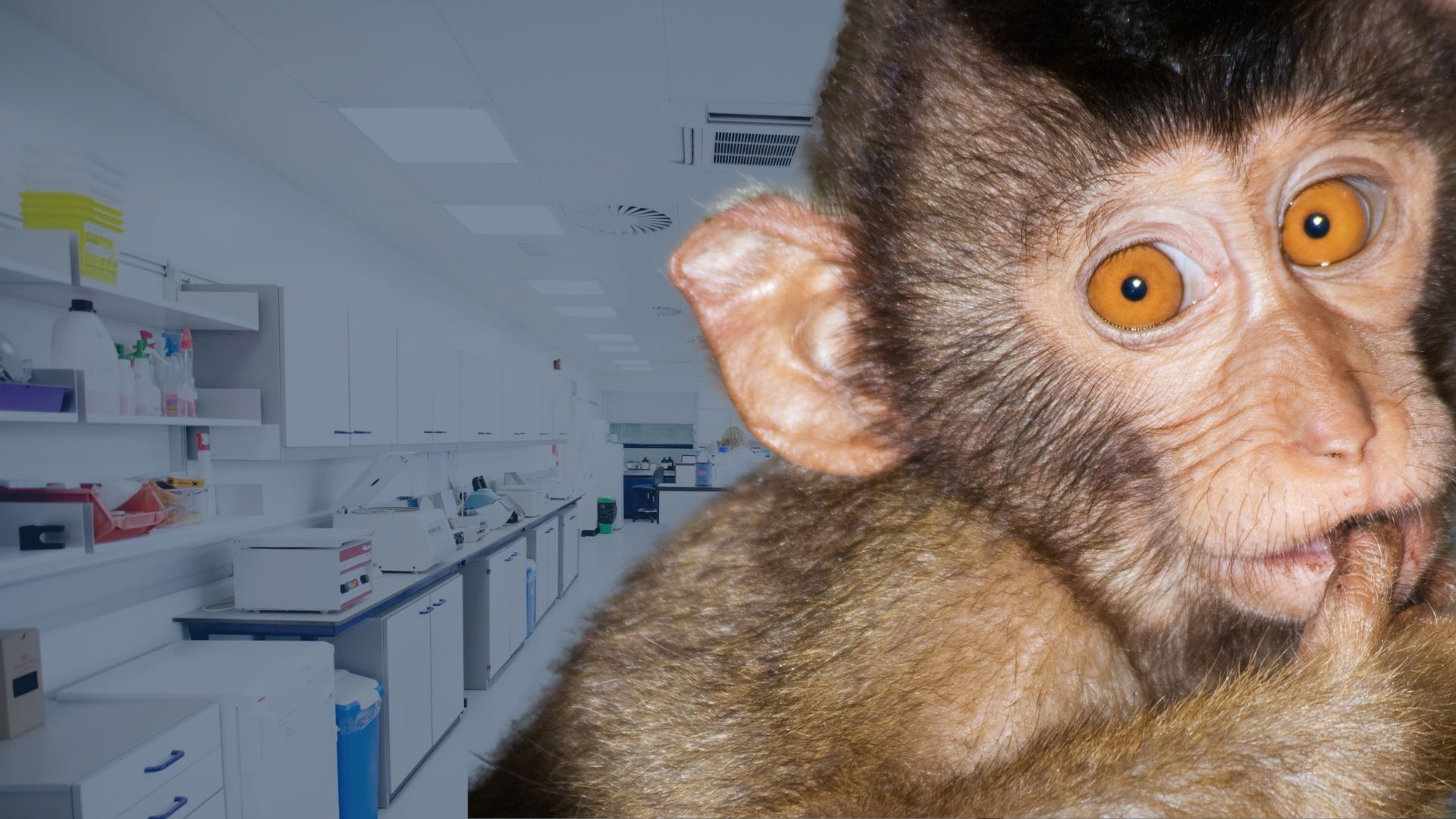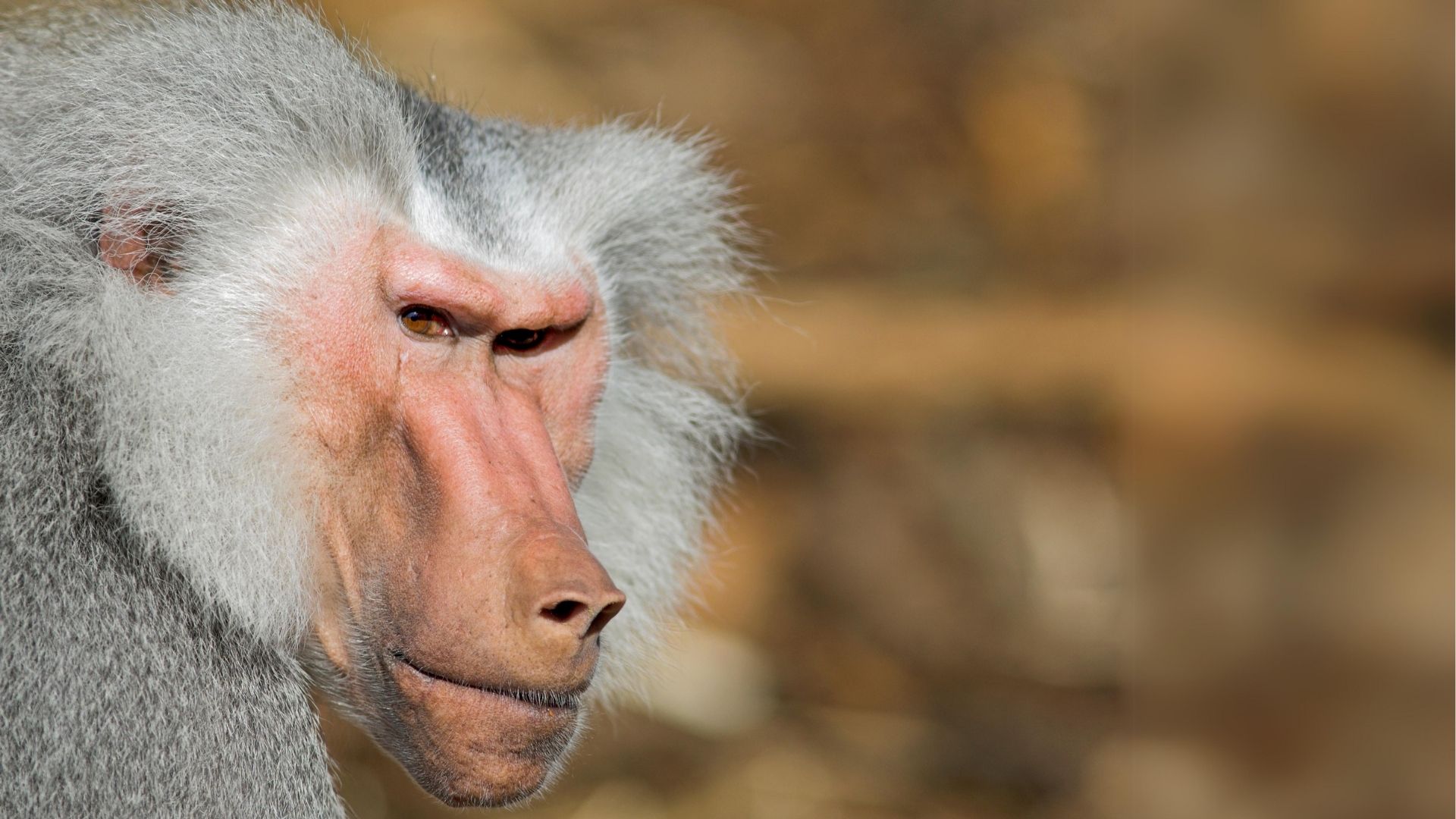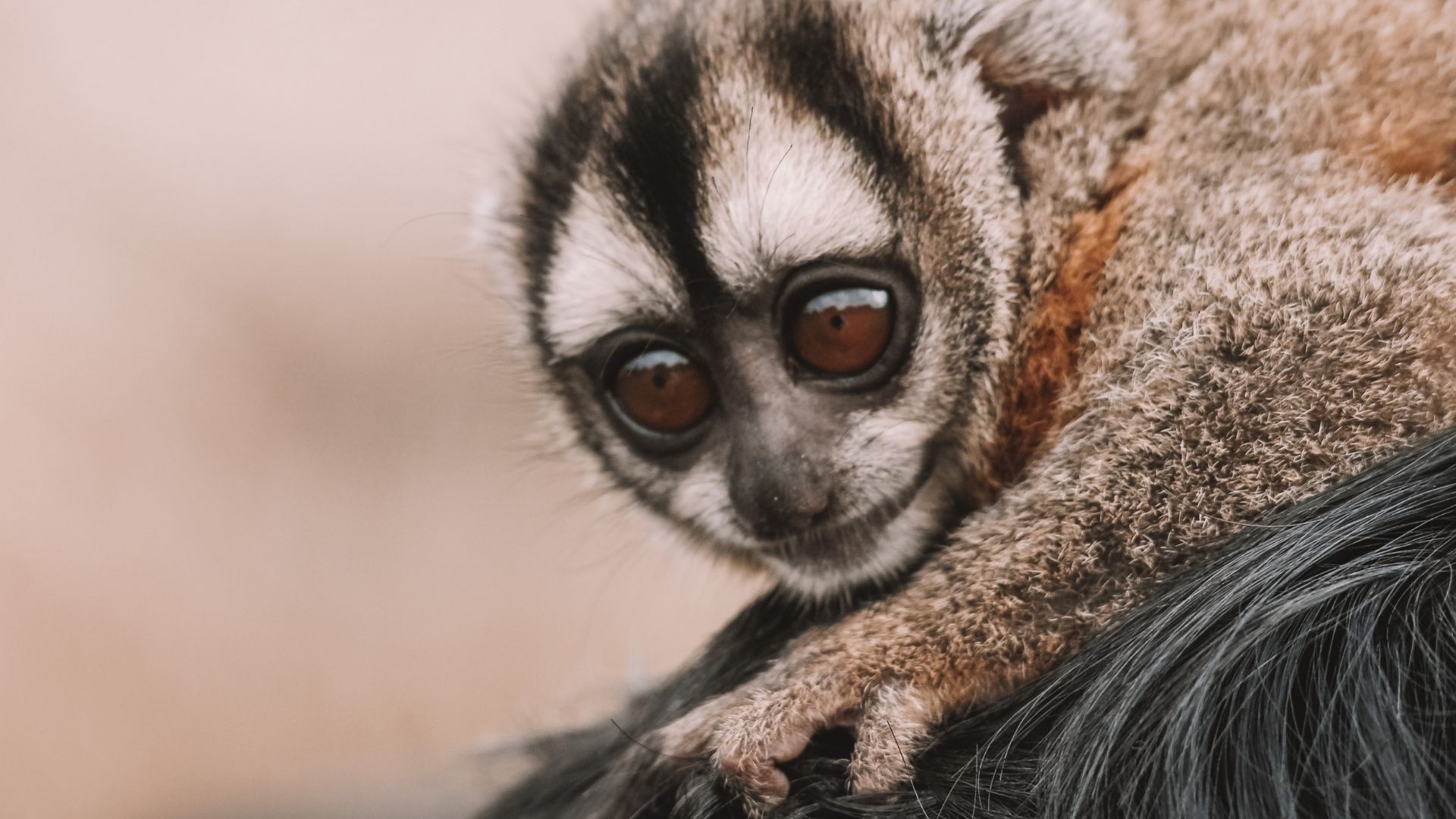Every year, hundreds of primates are confined to laboratories across Australia. Many are subjected to cruel experiments and are almost always killed afterward.
These primates include macaques, marmosets, baboons and night monkeys.
AFSA is opposed to all animal experimentation. However, primate research is particularly contentious, presenting a clear ethical dilemma of using animals with advanced cognitive abilities, a long lifespan, and well-developed social structures as mere ‘tools for research’. The animal welfare impacts associated with their advanced abilities are profound in a research setting, where they may associate previous negative experiences such as invasive procedures with future occurrences.
While some researchers see primates merely as ‘resources’, ‘lab tools’, or ‘animal models’, they are unique sentient beings, deserving of dignity, respect, and understanding. Animal-Free Science Advocacy calls for Australia to end primate experiments, highlighting the ethical and scientific benefits of animal-free research methods.
The Law on using primates in Australian research
All experiments conducted in Australia involving non-human primates must comply with:
- Principles and guidelines for the care and use of non-human primates for scientific purposes (the Guidelines), which is a revision of the NHMRC’s Policy on the care and use of non-human primates for scientific purposes 2003 (2)
- Australian Code for the Care and Use of Animals for Scientific Purposes (currently in the 8th 2013 edition). The Code currently provides that “particular justification” is required for activities involving the use of non-human primates.
- Relevant State and Territory legislation, for example, animal welfare acts. These acts refer to, amongst other things, the breeding and use of primates for teaching and research.
Despite this legislation, primates continue to suffer in Australian research facilities as highlighted in our primate case studies. The law is insufficient to protect primates from being harmed in invasive research and confined to a lifetime of use as a research tool.
Take action to end primate experiments
Our “Honour Me With A Name” campaign invites supporters to sponsor primates and help raise awareness. You can also take action and raise awareness with our email action, online advocacy, and more. By supporting these initiatives, together we can advocate for research alternatives and the rehoming of primates formerly held in Australian research facilities.




Support Our Campaign:
Why we are calling on the Federal Minister of Health and the NHMRC
The NHMRC is the biggest funder of primate research in Australia. Questions on Notice put to the Budget Estimates Committee by Greens Senator Mehreen Faruqi revealed 7 grants were awarded by the NHMRC for primate research for the years commencing 2021 to 2024. These grants total over $11 million of taxpayer funds and involve very invasive procedures on primates including brain experiments. The questions also revealed that a total of 236 non-human primates have been proposed for use in research projects currently funded by the NHMRC. (October 2024)
‘Honour Me With A Name‘ campaign. As an individual or a corporate sponsor, you can name a primate.
Firstly, browse the stories of individual primates, each one is based on factual information we have gathered about their lives in labs.
Secondly, select one of our sponsorship packages. Your contribution helps us to campaign for an end to animal experimentation in Australia.
Bronze Package ($250): Receive a personalised certificate and a Maurice the Monkey plush toy, with an optional shout-out on social media.
Silver Package ($500): All the benefits of the Bronze package, plus an optional thank you call and a personalised poster featuring the story of a primate you have named.
Gold Package ($750): Includes all Silver benefits, a thank you on our website, a stylish AFSA T-shirt, and an exclusive behind-the-scenes tour at Banana Cabana Primate Sanctuary in Sydney.
Diamond Corporate Package (Minimum $1,500): Ideal for businesses, this package includes a presentation to your team, features your company’s logo on our site, and other Gold Package benefits.
* After placing your order, you will receive an email to determine your preferences for your package. If the primate you select is shown as ‘sold out’ this means a name has already been allocated.

Share Our Campaign
Raise Awareness
Become a AFSA Member
Each primate’s image and story is shareable from the shop to social media. So even if you aren’t supporting our campaign financially, you can support it by sharing these stories widely to your friends. Use the hashtags #HonourMeWithAName and #BanPrimateExperiments so we can find your posts.
We welcome the opportunity to collaborate with passionate animal advocates.
For advice and coordination about street-based and university-based actions, please get in touch with us for pamphlets and postcards.

Our yearly membership is reasonably priced at $33 AUD per year. Membership means you are supporting our advocacy work to end animal experiments in Australia and can also take the opportunity to be more closely involved in our work.

Honour Me With A Name
Learn more about our campaign to name and give dignity and respect to primates and their individual stories living in Australian labs.

Primate Experiment Resources
Discover resources such as videos, articles and podcasts about current research on primates both in Australia and worldwide.

Experts Opposing Primate Research
Dr Jane Goodall, Dr Garet Lahvis, Sir David Attenborough and others weigh in with their views on the harms of using primates in research.
A Government Funded Sanctuary for Primates Used in Australian Research Is Urgently Needed
The 8th edition of the Australian code for the care and use of animals for scientific purposes was released in 2013 and it states (in section 3.4.2) that:
“Opportunities to rehome animals should be considered wherever possible, especially when the impact of the project or activity on the wellbeing of the animal has been minimal and their physiological condition and behavioural attributes indicate that they can be introduced to a new environment with minimal, transient impact on their wellbeing.”
There are no purpose-built sanctuaries in Australia for rehoming primates from laboratories
There are currently no purpose-built retirement facilities in Australia for primates after their use in research (1). This is despite the NHMRC Principles and guidelines for the care and use of non-human primates for scientific purposes requiring retirement to be considered if suitable in terms of the health and temperament of the animal, and space and resources are available at a facility that can meet their species-specific physical, social and behavioural needs.
In some cases, quality of life for primates may be possible post research
Depending on the type of research conducted on the animals, some may be left in a traumatised or deteriorated state, however many animals may still have the ability to sustain a quality life. To merely dispose of these animals when they are no longer required is a total disregard of their individual worth. Various options must now be considered. For example, if their use has been funded by the NHMRC then the NHMRC and/or research institution must take responsibility to ensure that the wellbeing of these animals is guaranteed for the remainder of their natural lives. Overseas rehoming programs exist where universities work with sanctuaries to retire primates. For example, Princeton and Yale Universities have partnered with Peaceable Primate Sanctuary in North America.
Animal-free Science Advocacy envisages the establishment of a primate sanctuary funded through an arrangement between the federal and state governments. These animals deserve no less than a dignified retirement in return for their use in science.
[1] Senate Community Affairs Committee, ‘Answers to estimates questions on notice’, Health and Ageing Portfolio, Budget Estimates 2013-14, 5/6 & 7 June 2013, question E13-104, http://www.aph.gov.au/~/media/Estimates/Live/clac_ctte/estimates/bud_1314/DoHA/Answers/104.ash
[2] National Health and Medical Research Council, (2016) Principles and guidelines for the care and use of non-human primates for scientific purposes

Banana Cabana Primate Sanctuary
Located in Dural, 40 minutes from Sydney is a sanctuary that is semi-public and dedicated to providing end of life care and a forever home to primates that have been unwanted for many reasons. These animals come from Zoos, circuses and in one case from a laboratory. At Banana Cabana Primate Sanctuary, these primates are able to live out the remainder of their lives in peace in a rural natural setting with access to stimulating activities. Banana Cabana is a suitable place for rehoming primates from labs and provides an alternative to the killing of many of these primates after they are used in experimentation.
International Primate Sanctuaries
There are an increasing number of primate sanctuaries around the world which accommodate primates formally used in medical research.
- Chimp Haven in Louisiana, USA.
- Primates Inc in Wisconsin, USA.
- Pan Pacific Primate Sanctuary in Hawaii, USA.
- Oklahoma Primate Sanctuary, USA
- Peaceable Primate Sanctuary, North America
